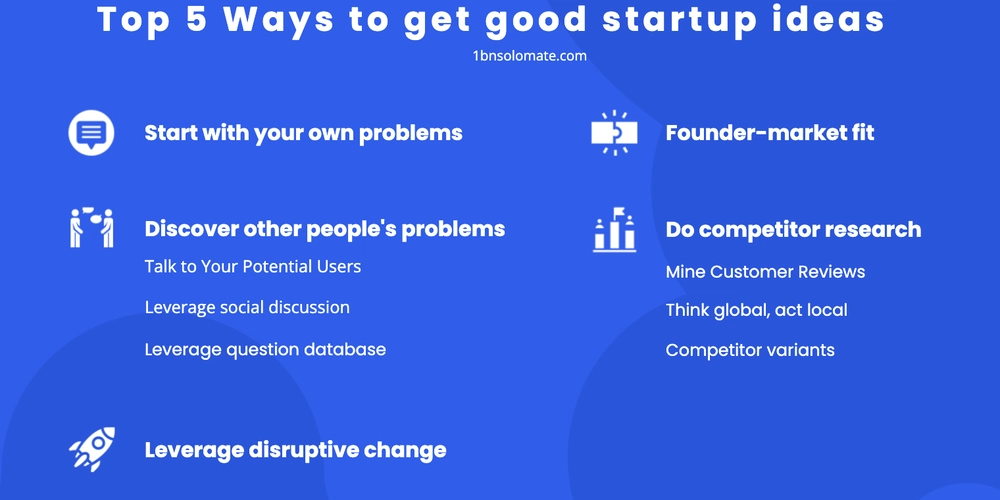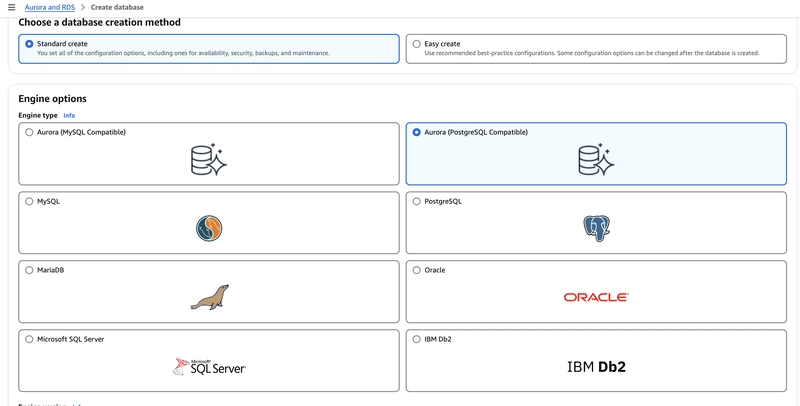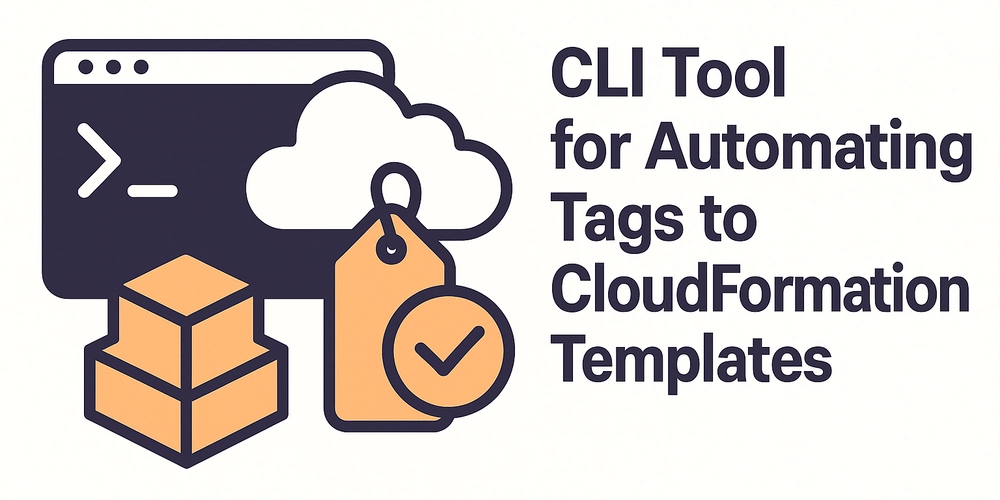Top 5 Proven Ways to Discover Startup Ideas That People Actually Want
You know what's ironic? As developers, we spend countless hours building products for other people's visions, yet rarely take the leap to build something for ourselves. I've been there—writing code to bring someone else's startup to life while my own ideas gathered dust in Notion docs and GitHub repos. But here's the thing: with AI tools making development faster than ever and the barrier to entry lower than it's ever been, there's never been a better time for developers like us to scratch our own itch and build something meaningful. The question is: how do you find an idea worth pursuing? Let me share something I've learned the hard way: technical ability isn't the limiting factor for most developer-founders—it's finding the right problem to solve. After three years of building startups (and accumulating an impressive collection of failures), I've discovered that the best ideas aren't just technically interesting—they solve real problems that people are willing to pay for. Here are five battle-tested approaches to finding startup ideas based on actual demand: 1. Start With Your Own Problems The most authentic startup ideas often come from scratching your own itch. Y Combinator has funded countless startups that began this way, and for good reason—you deeply understand the problem, the existing solutions, and exactly why they fall short. When you build for yourself, you're your own first customer. You can validate ideas quickly because you know exactly what a good solution looks like. My personal example: After several startup failures, I realized I was making the same mistakes repeatedly. I needed a systematic approach to validate ideas before investing months of development time. So I built a tool to help me avoid common traps and navigate from idea to product-market fit more efficiently. What started as a personal project is now helping other developers avoid the same painful lessons I learned. Pro tip: Keep a "problems journal" where you document frustrations you encounter in your daily life or work. Review it periodically—your next startup might be hiding in there. 2. Mine Other People's Problems Sometimes the best problems to solve aren't your own. Here's my systematic approach to finding other people's pain points: Define your ideal customer profile: Who do you want to build for? Be specific about demographics, technical background, industry, etc. Find their watering holes: Where do these people hang out online? For developers, this might be specific subreddits, Discord servers, Hacker News, or Stack Overflow. Listen before you build: This is crucial. I've found incredible success mining conversations in relevant subreddits. For example, when researching content creation tools, I'll spend hours in r/content_marketing, r/marketing, and r/DigitalMarketing looking for recurring complaints. Conduct problem interviews: Reach out to potential users and ask open-ended questions about their workflows and pain points. Don't pitch solutions yet—just listen. I recently discovered a pain point around content creation by noticing the same complaint appearing repeatedly in r/content_marketing. After interviewing 10 potential users, I had a clear picture of an underserved need that I could potentially build a solution for. 3. Do Strategic Competitor Research Existing products are goldmines of startup ideas if you know how to look. Here are three approaches I've used successfully: Build a Better Product Find review sites for existing solutions in your area of interest. Focus on 2-3 star reviews—they often contain specific, actionable feedback about what's missing or broken. I use this pattern: Find products on Trustpilot, G2, Capterra, or ProductHunt Analyze the mid-range reviews Look for patterns in complaints Consider if you could build something that addresses those specific pain points Build a Variant Not every new product needs to reinvent the wheel. TikTok didn't replace YouTube—it created a new category for short-form video. Think about successful products that could be reimagined for: Different content formats Different user demographics Different use cases Think Global, Act Local Some of the most successful startups simply adapted proven business models to new markets. You don't need to be the next Amazon—you could be the Amazon of an underserved region or industry vertical. As a developer in your country/region, consider which global platforms haven't effectively penetrated your local market and why. Cultural differences, language barriers, and unique local needs often create opportunities for localized versions of successful products. 4. Leverage Your Founder-Market Fit The most sustainable startups often emerge from the intersection of what you know and what you love. As developers, we have unique domain knowledge that can be our unfair advantage. Start by listing: Industries you have experience in

You know what's ironic? As developers, we spend countless hours building products for other people's visions, yet rarely take the leap to build something for ourselves. I've been there—writing code to bring someone else's startup to life while my own ideas gathered dust in Notion docs and GitHub repos. But here's the thing: with AI tools making development faster than ever and the barrier to entry lower than it's ever been, there's never been a better time for developers like us to scratch our own itch and build something meaningful.
The question is: how do you find an idea worth pursuing?
Let me share something I've learned the hard way: technical ability isn't the limiting factor for most developer-founders—it's finding the right problem to solve. After three years of building startups (and accumulating an impressive collection of failures), I've discovered that the best ideas aren't just technically interesting—they solve real problems that people are willing to pay for.
Here are five battle-tested approaches to finding startup ideas based on actual demand:
1. Start With Your Own Problems
The most authentic startup ideas often come from scratching your own itch. Y Combinator has funded countless startups that began this way, and for good reason—you deeply understand the problem, the existing solutions, and exactly why they fall short.
When you build for yourself, you're your own first customer. You can validate ideas quickly because you know exactly what a good solution looks like.
My personal example: After several startup failures, I realized I was making the same mistakes repeatedly. I needed a systematic approach to validate ideas before investing months of development time. So I built a tool to help me avoid common traps and navigate from idea to product-market fit more efficiently. What started as a personal project is now helping other developers avoid the same painful lessons I learned.
Pro tip: Keep a "problems journal" where you document frustrations you encounter in your daily life or work. Review it periodically—your next startup might be hiding in there.
2. Mine Other People's Problems
Sometimes the best problems to solve aren't your own. Here's my systematic approach to finding other people's pain points:
- Define your ideal customer profile: Who do you want to build for? Be specific about demographics, technical background, industry, etc.
- Find their watering holes: Where do these people hang out online? For developers, this might be specific subreddits, Discord servers, Hacker News, or Stack Overflow.
- Listen before you build: This is crucial. I've found incredible success mining conversations in relevant subreddits. For example, when researching content creation tools, I'll spend hours in r/content_marketing, r/marketing, and r/DigitalMarketing looking for recurring complaints.
- Conduct problem interviews: Reach out to potential users and ask open-ended questions about their workflows and pain points. Don't pitch solutions yet—just listen.
I recently discovered a pain point around content creation by noticing the same complaint appearing repeatedly in r/content_marketing. After interviewing 10 potential users, I had a clear picture of an underserved need that I could potentially build a solution for.
3. Do Strategic Competitor Research
Existing products are goldmines of startup ideas if you know how to look. Here are three approaches I've used successfully:
Build a Better Product
Find review sites for existing solutions in your area of interest. Focus on 2-3 star reviews—they often contain specific, actionable feedback about what's missing or broken. I use this pattern:
- Find products on Trustpilot, G2, Capterra, or ProductHunt
- Analyze the mid-range reviews
- Look for patterns in complaints
- Consider if you could build something that addresses those specific pain points
Build a Variant
Not every new product needs to reinvent the wheel. TikTok didn't replace YouTube—it created a new category for short-form video. Think about successful products that could be reimagined for:
- Different content formats
- Different user demographics
- Different use cases
Think Global, Act Local
Some of the most successful startups simply adapted proven business models to new markets. You don't need to be the next Amazon—you could be the Amazon of an underserved region or industry vertical.
As a developer in your country/region, consider which global platforms haven't effectively penetrated your local market and why. Cultural differences, language barriers, and unique local needs often create opportunities for localized versions of successful products.
4. Leverage Your Founder-Market Fit
The most sustainable startups often emerge from the intersection of what you know and what you love. As developers, we have unique domain knowledge that can be our unfair advantage.
Start by listing:
- Industries you have experience in
- Topics you're passionate about
- Technologies you understand deeply
Then use keyword research tools like Google Keyword Planner to explore search volume around these topics. High search volume often indicates demand for solutions.
5. Ride the Wave of Technological Disruption
Major technological shifts create massive opportunities. AI is the obvious current example, but there are always emerging technologies creating new possibilities.
The pattern I follow:
- Identify a significant technological shift (AI, blockchain, AR/VR, etc.)
- Consider traditional industries that haven't yet been transformed by this technology
- Look for specific workflows or processes that could be reimagined
For AI specifically, consider:
- Which professional tasks can now be partially automated?
- What new user interfaces become possible with AI assistance?
- Which data-heavy processes can be made more intelligent?
Validating Your Ideas Before Writing Code
Once you have a promising idea, resist the urge to immediately start coding. Instead:
- Create a simple landing page describing your solution
- Set up a waitlist to gauge interest
- Run small ad campaigns targeting your ideal users
- Talk to potential customers who sign up
This simple approach has saved countless hours of building products nobody wants. Only when you have clear validation should you start serious development work.
The Developer's Advantage
As developers, we have a unique advantage in the startup ecosystem—we can build our solutions without significant upfront investment. But this advantage can also be a trap if we build without validating first.
The most successful developer-founders I know combine their technical skills with customer-focused research. They don't just build what's technically interesting; they build what solves real problems for real people.
After experiencing the frustration of building products nobody wanted, I created a tool that helps developers like us go from ideas to product-market fit without wasting time, money, and energy. It guides you through finding startup ideas, conducting market research, identifying early customers, and generating launch plans based on proven frameworks. If you're serious about turning your coding skills into a successful startup, check it out here: 1bnsolomate









































































































































































![[The AI Show Episode 142]: ChatGPT’s New Image Generator, Studio Ghibli Craze and Backlash, Gemini 2.5, OpenAI Academy, 4o Updates, Vibe Marketing & xAI Acquires X](https://www.marketingaiinstitute.com/hubfs/ep%20142%20cover.png)



























































































































![[FREE EBOOKS] The Kubernetes Bible, The Ultimate Linux Shell Scripting Guide & Four More Best Selling Titles](https://www.javacodegeeks.com/wp-content/uploads/2012/12/jcg-logo.jpg)



![From drop-out to software architect with Jason Lengstorf [Podcast #167]](https://cdn.hashnode.com/res/hashnode/image/upload/v1743796461357/f3d19cd7-e6f5-4d7c-8bfc-eb974bc8da68.png?#)






































































































.png?#)




.jpg?#)
































_Christophe_Coat_Alamy.jpg?#)








































































































![Rapidus in Talks With Apple as It Accelerates Toward 2nm Chip Production [Report]](https://www.iclarified.com/images/news/96937/96937/96937-640.jpg)








































































































































